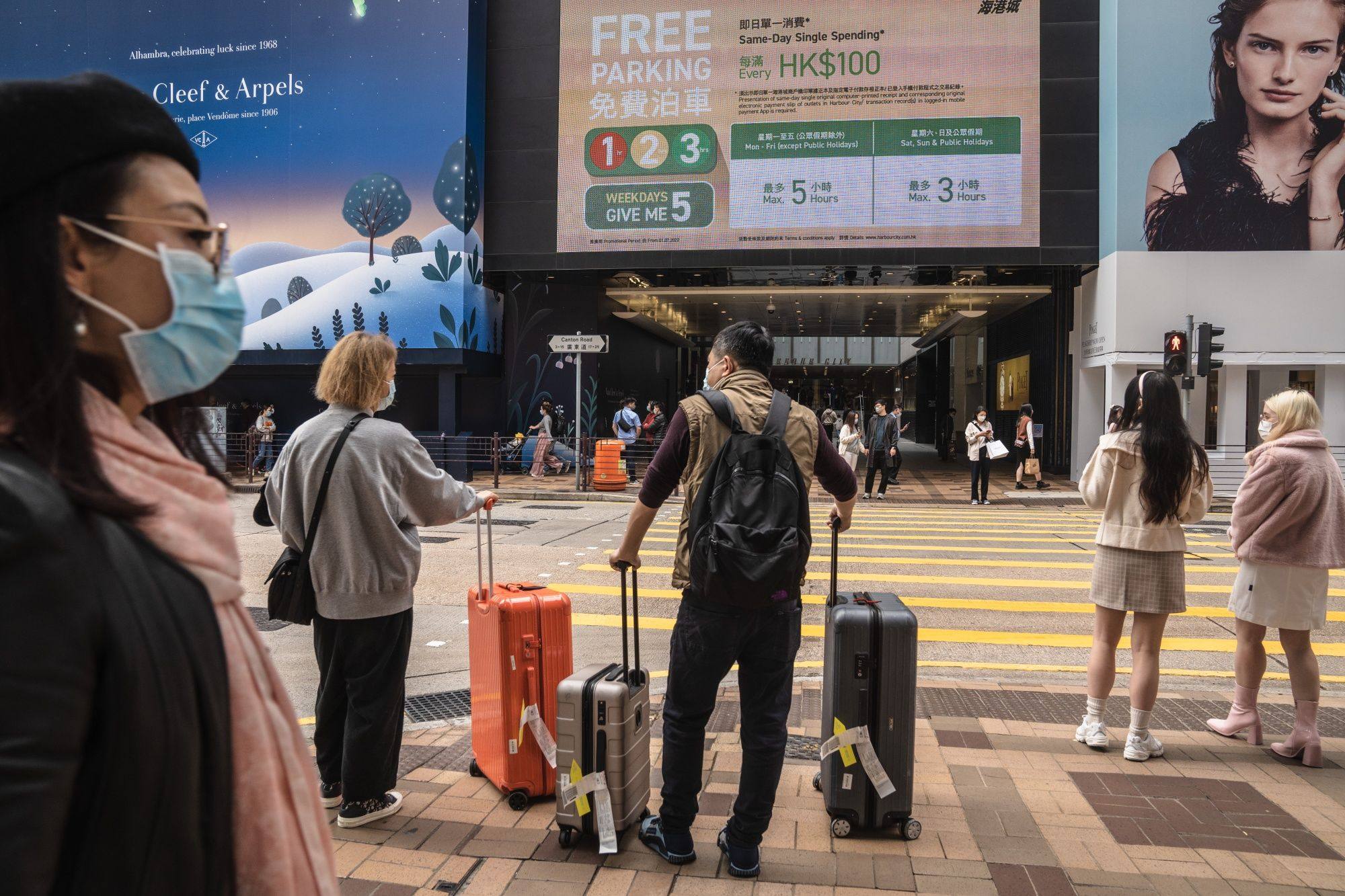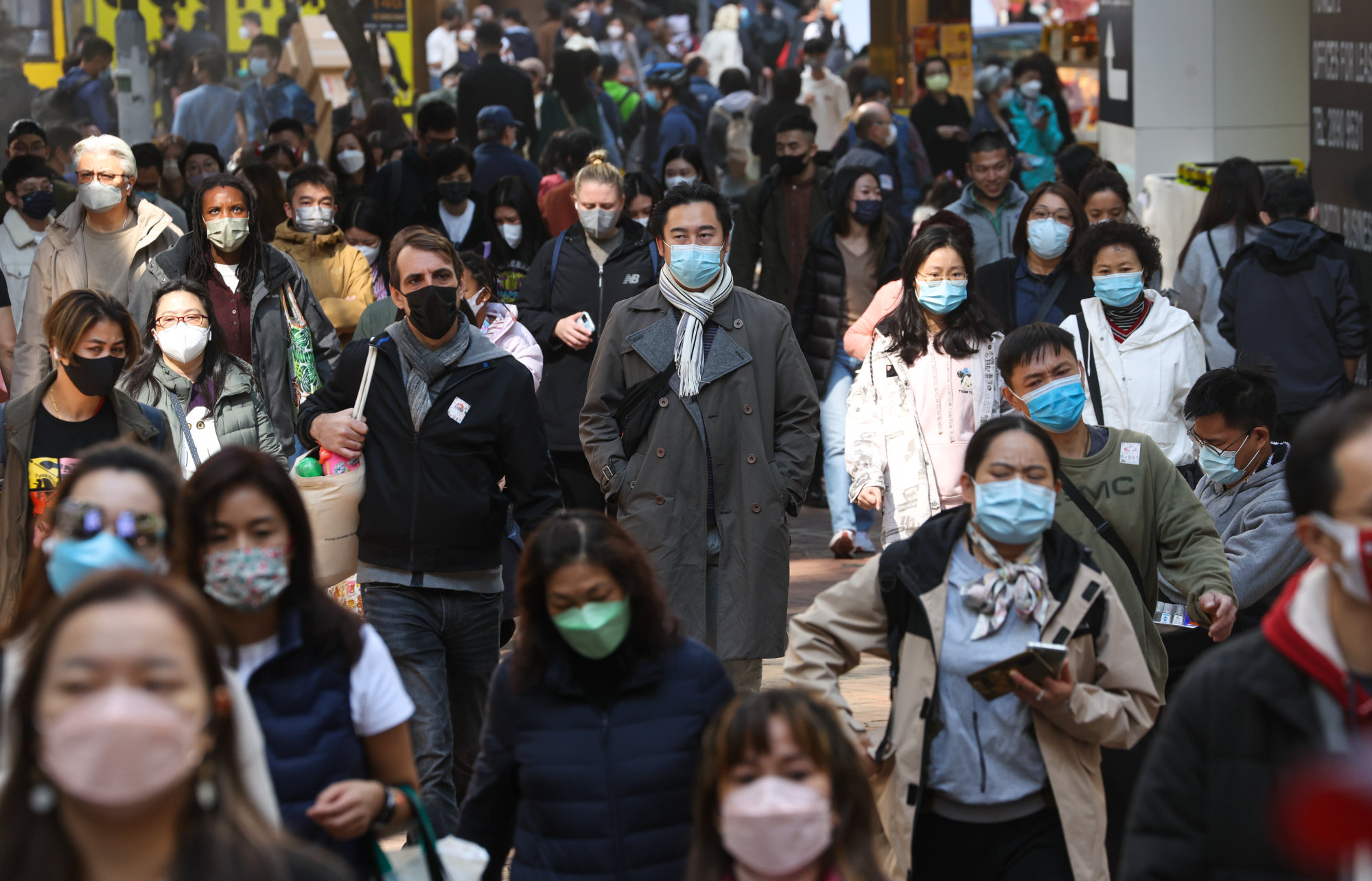
Hong Kong’s talent exodus to Singapore: can it be reversed and is ‘a new wave of expats’ inbound?
- Mainland China’s reopening and Hong Kong’s gateway status ensure ‘a new wave of expats to the city’ even if those who left don’t return, insiders say
- Departees told This Week in Asia they’re ‘at peace’ with the move and aren’t looking back despite Singapore battling inflation and soaring rents
The 32-year-old business owner now lives closer to her family and can afford to rent a two-bedroom condominium apartment in the city state’s east.

Expatriates ditching Hong Kong stoke Singapore home rents to 2014 high
Still, many former residents like American expat Josh Gardner, who now runs an e-commerce agency in Singapore, have no plans to return.
“I’m at peace with this decision,” said Gardner, who is in his 40s and initially moved to Hong Kong more than five years ago to escape the pollution of Shanghai.
Though he misses the city’s food and its many public green spaces, he said living there “was in fact bad for my career”.
“Most brands already moved their key people out of Hong Kong so there was no community around what we do,” Gardner said. “Singapore is the hub for brands in Southeast Asia and the other hub is Shanghai.”
High inflation, rents
Singapore may have reopened to the world sooner than Hong Kong, but the city state has also been hit by soaring residential rents and high inflation.
It’s a similar story with inflation. Singapore’s headline inflation rate for 2022 was 6.1 per cent – up from 2.3 per cent the year before – whereas Hong Kong’s has been largely flat at about 2 per cent for the past two years.

Yet most relocation firms and real estate professionals who spoke to This Week in Asia said Singapore’s high cost of living had yet to translate into a trend of Hongkongers and other expats leaving the city state.
Pull factors such as political stability, high medical and education standards, and strong support for businesses allow new arrivals to justify the cost of moving to Singapore, said Christine Sun, vice-president of research and analytics at property agency OrangeTee and Tie.
“Cost of living and rising rental prices could be important factors [in deciding where to live],” she said. “But a similar trend can be observed for other advanced cities where their cost of living and rents are also at record highs.”
Sanchit Bhatnagar, Asia head of relocation firm Sanelo, said expats who did make the move to Singapore had found it very “intensive” and were unlikely to want a repeat of all that upheaval by returning to Hong Kong – especially given “the long-term trends in environmental factors in both cities at this point [that] far outweigh any effects from the opening of China”.
Singapore’s economic growth slows as global headwinds mount
Daniel*, who currently works for a major foreign bank based in Hong Kong but could be sent to Singapore, agrees.
“Many expats treasure the chance to move to Singapore as their clients [also] want to,” he said, adding that he thinks rent increases in Hong Kong will catch up soon with those in the city state so “there’s no need for regrets”.
In recent months, there have been reports of a flurry of private equity firms, wealth managers and investors decamping Hong Kong for Singapore, with family offices reportedly facing months-long waits to apply for tax exemptions in the city state on account of the deluge of applications.
Singaporean family office lawyer Chung Ting Fai attributed this to the city state’s variable capital company rules, which he said were similar in structure to Hong Kong’s except the latter’s have “proven to be not as attractive”.
‘A new wave of expats’
Though Hong Kong’s talent exodus is undeniable, CIMB Private Banking economist Song Seng Wun does not expect it to last as the city is still an important gateway to China and “people will follow where the money is”.
“We’re already seeing more new faces in Hong Kong, and I expect this trend to continue,” said Eli McGeever, director of research and technology innovation at property investment consultancy One Global Labs.
“We’ll see some expats return, as well as a new wave of expats to the city,” he said, indicating that Hong Kong still has a bright future though “there is more work to be done”.
We’re already seeing more new faces in Hong Kong, and I’d expect this trend to continue
Easy access to the mainland is another benefit of the city for businesses, said John Hu, founder of a Hong Kong-based consultancy that specialises in business visas, John Hu Migration Consulting.
“Whether they are going to settle down permanently is another issue, but there is definitely going to be more traffic coming into Hong Kong and China,” he said.
The aggressive immigration drive aims to bring in more than 100,000 top professionals by 2025.

Combined with a yearly influx of 50,000 local university graduates into the workforce, the city’s No 2 official, Chief Secretary Eric Chan Kwok-ki, has said he expects Hong Kong to make up for the 140,000 workers who quit the city over the past two years.
Two weeks after the scheme’s launch, Chan revealed that it had received 5,800 applications, including 800 who earned at least HK$2.5 million (US$319,100) a year.
In early January, the Secretary for Labour and Welfare, Chris Sun, travelled to Singapore and the Philippines as part of efforts to tap overseas experience in talent recruitment.
Hong Kong to attract Middle East companies with promotion drive: finance chief
A Hong Kong government spokesman told This Week in Asia that following the implementation of the national security law, funds raised through share offerings in Hong Kong hit HK$660 billion (US$84.2 billion) and its asset and wealth management business grew 20 per cent over 2021. At the end of last year, Hong Kong was Asia’s largest hedge fund hub and the second largest for private equity.
“These fully demonstrated the confidence of the investment community in Hong Kong,” he said.
*Name changed at interviewee’s request


